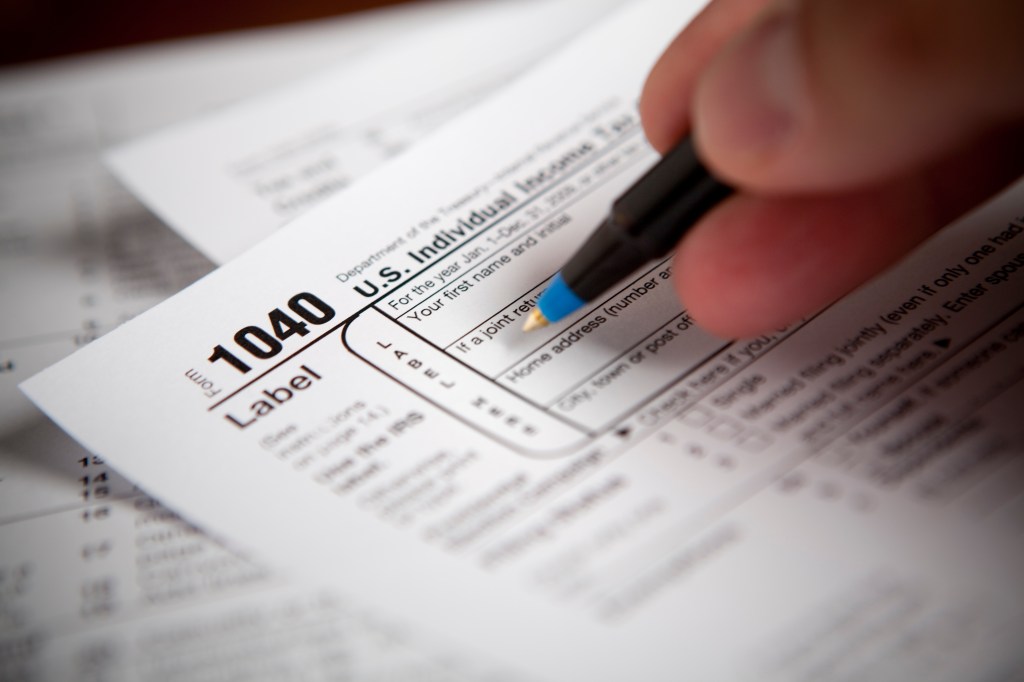First time filing taxes? Here are some tips

With roughly a month to go before the federal income tax filing deadline, which this year is April 18, we asked Larry Ginsberg, executive professor of accounting in the D’Amore-McKim School of Business, what students and first-time filers should expect. Here are some of his tips, including which forms to have on hand to making the process as painless as possible.
What general tips do you have for students who may be filing their taxes for the first time this year?
First, determine if you are required to file.
In general, the requirement to file will be dictated by age, amount and type of income, filing status (that is, whether you are married or single), and whether your parents claimed you as a dependent.
One of the most frequent errors first-time filers make is not coordinating the filing with their parents; your parents may (and very likely will) have claimed you as a dependent, which means they will get certain deductions on their tax return. If your parents claimed you, you will not be able to take those deductions. If both you and your parents file and claim these deductions, it is highly likely your return will be bounced. So coordinate with your parents.
In addition, if your income came only from interest and dividends, and you meet certain other requirements, you may be able to include this income on your parents’ returns and therefore avoid your own filing. Again, coordinate with your parents.
Coordinating with your parents is also important if you plan on taking advantage of some of the tax “benefits” available to students and their families, like the student loan interest deduction or one of the education-related credits available.
Even if you do not meet the income requirement for filing, you may want to file if you had taxes withheld and qualify for a refund.
Which documents should they have nearby?
At a minimum, you will need:
- W-2s, showing income earned through working
- 1099s, showing interest income, dividend income, and stock sales
- 1098-T, which will show tuition and fees paid
- 1098-E, showing student loan interest paid
Most students are aware that the Internal Revenue Code is consistently classified as being far too complicated—despite this, the instructions for filling out IRS forms are typically good—so students may want to have available the instructions to:
- Form 1040 and 1040 EZ, the personal income tax returns
- Form 8917 to support the deduction for tuition and fees
- Form 8663 to support any education credits claimed
In addition, the IRS website has a number of publications on tax topics that may be helpful.
For students who were on co-op last year, how do their tax filings differ from a typical full-time student?
Other than the possibility that income is significantly higher for a student who was on co-op, (and the higher likelihood that there are significant tax withholdings), the tax filings should not be significantly different.
However, first-time student filers should not forget about state tax filings—so far everything noted here is looking at the federal return. However, if a student worked in Massachusetts, but lives in another state, the student may have filing requirements in both Massachusetts and the home state. Similarly, a student who is at school at Northeastern and worked a part-time job in Massachusetts while on campus, lives in another state, and did a co-op in a yet a third state may have filing requirements in three states.
What happens if students miss the deadline to file?
As students learn in the introductory accounting course, time value of money counts. Therefore, the IRS would like to be paid sooner rather than later. Plus, there is an enforcement angle to requiring taxpayers to file on time. Accordingly, a return filed late may incur both penalties (for filing late and paying late) and interest charges (for paying late). The rates are typically significantly higher than normal bank rates, so they should be avoided if at all possible. For 2016 returns, the federal filing date is April 18. A six-month extension of time to file the return (but not to pay the tax due) is fairly easy to obtain if needed.
Editor’s note: For additional resources, the Center for Financial Independence, located in the Curry Student Center, offers a tax tips handout to students.





